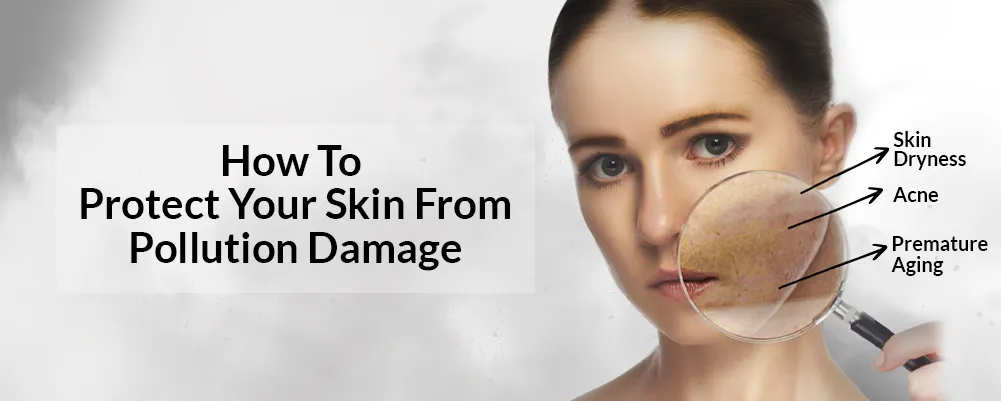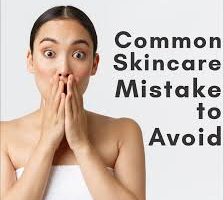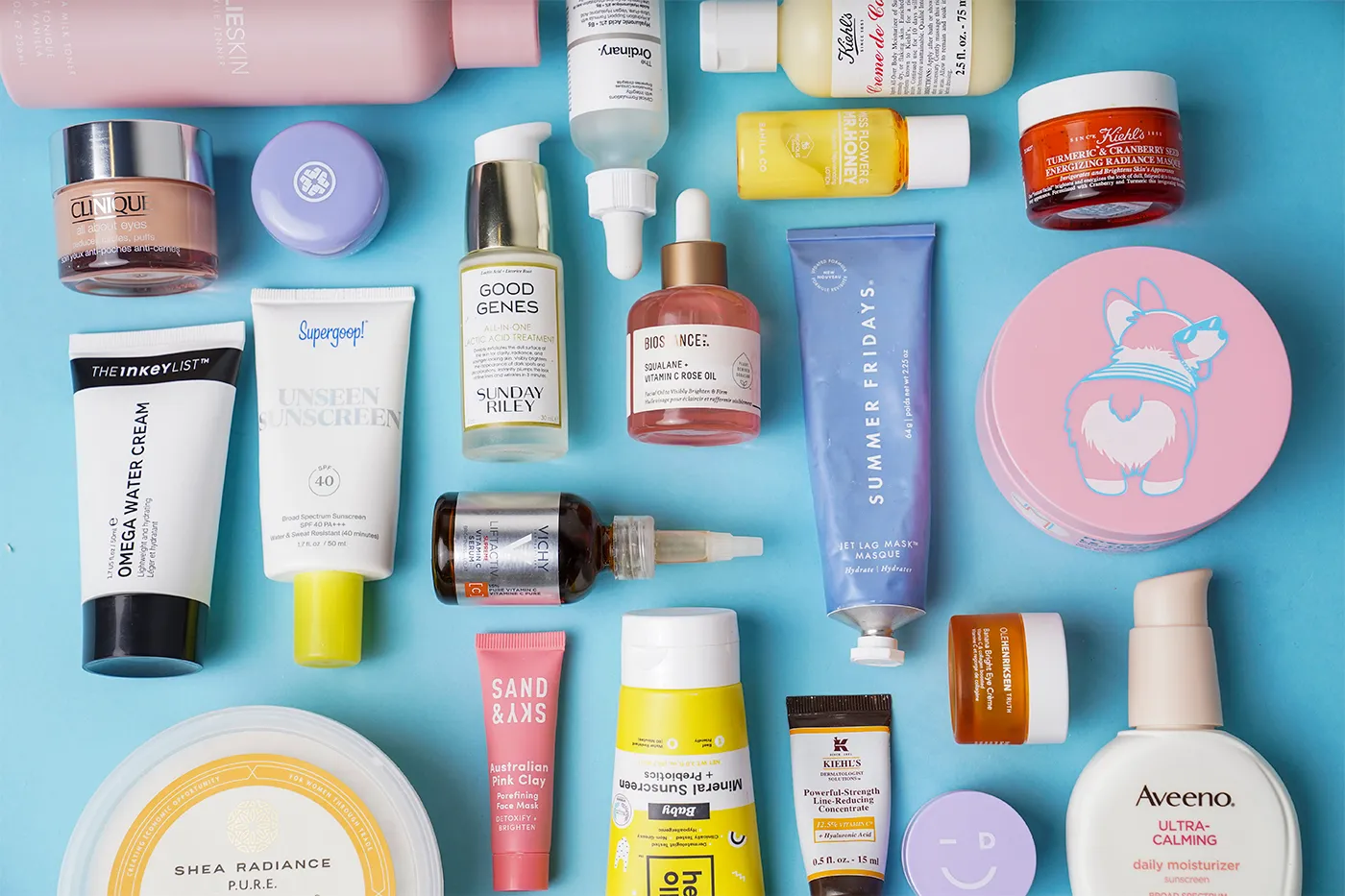Environmental pollution, especially in urban areas, has become a major contributor to skin aging, irritation, and a range of skin concerns. Pollutants such as vehicle emissions, industrial chemicals, dust, and even pollen can damage the skin’s barrier, leading to dryness, breakouts, pigmentation, and inflammation. Thankfully, there are several strategies to shield your skin from the harmful effects of pollution. Below is a detailed guide to understanding and protecting your skin from environmental pollutants.
1. Understanding How Pollution Affects Your Skin
Pollution affects the skin in multiple ways, mainly through oxidative stress and inflammation. Here’s a breakdown of how pollution harms your skin:
- Free Radicals and Oxidative Stress: Pollution, particularly fine particulate matter (PM2.5), can create free radicals in the skin. Free radicals are unstable molecules that damage healthy skin cells, resulting in accelerated aging (fine lines, wrinkles, and sagging), dullness, and loss of skin elasticity.
- Skin Barrier Damage: The skin barrier acts as a protective layer to keep pollutants out. When the barrier is compromised, it can lead to dehydration, irritation, and more severe skin conditions like eczema and rosacea.
- Hyperpigmentation: Pollution-induced inflammation can trigger the overproduction of melanin, leading to dark spots or uneven skin tone, especially when combined with sun exposure.
- Acne and Clogged Pores: Dirt, dust, and pollutants can clog your pores, leading to acne breakouts, blackheads, and congestion.
- Premature Aging: Exposure to environmental pollutants accelerates skin aging by breaking down collagen and elastin, leading to premature wrinkles and fine lines.
2. Step-by-Step Guide to Protect Your Skin from Pollution

Step 1: Double Cleanse to Remove Pollutants
- Cleansing is the first and most crucial step in protecting your skin from pollutants. Pollution particles can stick to your skin throughout the day, so a gentle but effective cleanse is necessary to remove them.
- Double cleansing involves using two different types of cleansers to thoroughly remove dirt and pollution:
- Oil-based cleanser: The first step involves using an oil-based cleanser to break down makeup, sunscreen, and oil-based pollutants.
- Water-based cleanser: Afterward, use a gentle water-based cleanser to remove any remaining dirt and pollutants.
- This ensures that your skin is clean and free from the harmful effects of environmental debris.
Step 2: Use Antioxidant-Rich Skincare Products
- Antioxidants help neutralize free radicals caused by pollution. Incorporating antioxidant-rich products into your skincare routine can help protect your skin from oxidative stress and inflammation. Some popular antioxidants include:
- Vitamin C: Brightens the skin and neutralizes free radicals, reducing the damage caused by pollution.
- Vitamin E: Known for its skin-healing and anti-inflammatory properties.
- Niacinamide: Reduces skin irritation and helps restore the skin barrier.
- Green Tea Extract: Rich in polyphenols, it helps to reduce the oxidative damage caused by pollution.
- Resveratrol: A potent antioxidant that protects skin from external aggressors.
Step 3: Strengthen the Skin’s Barrier
- The skin barrier is your first line of defense against pollutants. A compromised barrier can lead to irritation, dryness, and sensitivity. Strengthen your skin barrier by using products that hydrate and support its natural function:
- Ceramides: Help to restore and maintain the skin’s protective barrier.
- Hyaluronic Acid: Attracts moisture to the skin, ensuring it stays hydrated and plump.
- Fatty Acids: Keep the skin barrier intact, preventing pollutants from penetrating deeper layers of the skin.
Step 4: Apply SPF Daily
- Pollution can have a synergistic effect with sun exposure, worsening the damage to your skin. UV rays cause skin inflammation and can increase the penetration of pollutants into the skin. Therefore, using sunscreen is essential:
- Broad-spectrum sunscreen (SPF 30 or higher): It protects against both UVA and UVB rays, preventing sunburn and long-term skin damage.
- Sunscreens containing antioxidants (like vitamin C or E) provide extra protection against oxidative damage from both the sun and pollution.
- Physical sunscreens containing zinc oxide or titanium dioxide form a barrier on the skin, preventing pollutants and UV rays from penetrating the skin.
Step 5: Use Pollution-Fighting Face Masks
- Detoxifying masks can be a great way to remove pollution-related impurities and rejuvenate your skin. Use masks that contain ingredients known for their purifying properties:
- Clay masks (like bentonite or kaolin) are excellent for drawing out toxins and excess oil from the skin.
- Charcoal masks: Activated charcoal helps trap and remove toxins and pollutants from the skin.
- Vitamin C or antioxidant masks: These help to brighten the skin and provide extra protection against the oxidative damage caused by pollution.
Step 6: Incorporate Pollution-Blocking Skincare Products
- Pollution-blocking skincare products are specifically designed to protect your skin from the harmful effects of environmental aggressors. These products typically contain a combination of antioxidants, protective ingredients, and skin barrier-strengthening compounds. Look for products that are marketed as “anti-pollution” or “environmental protection” in their descriptions.
Step 7: Hydrate and Maintain Skin Moisture
- Pollution can dehydrate the skin, leading to dryness and irritation. To prevent this, make sure to hydrate your skin regularly with a good moisturizer that locks in moisture and maintains skin barrier function. Look for moisturizers with ingredients like glycerin, squalane, or hyaluronic acid to ensure deep hydration.
Step 8: Exfoliate Regularly
- Exfoliation helps to remove dead skin cells and pollutants that accumulate on the skin’s surface. Regular exfoliation ensures that your skin remains smooth, fresh, and free from the buildup of toxins and dirt.
- Chemical exfoliants such as AHAs (alpha-hydroxy acids) and BHAs (beta-hydroxy acids) help slough off dead skin and deeply cleanse pores.
- Physical exfoliants like scrubs can be used sparingly to remove surface debris without irritating the skin.
Step 9: Consider Antioxidant Supplements
- In addition to topical skincare, antioxidant supplements can help protect your skin from within. Supplements containing vitamins C, E, or A or omega-3 fatty acids can help fight the internal oxidative stress caused by pollution.
- Foods rich in antioxidants, such as berries, green leafy vegetables, nuts, and fatty fish, also contribute to skin protection from the inside.
Step 10: Keep Skin Clean Throughout the Day
- Throughout the day, pollution particles can settle on your skin. Carry a face mist or antioxidant spray in your bag to refresh your skin and offer a quick layer of protection. These mists can help neutralize free radicals and keep your skin hydrated, especially in highly polluted areas.
3. Additional Tips for Protecting Your Skin from Pollution
- Avoid Direct Contact with Pollutants: When possible, avoid spending long hours in areas with heavy pollution or smog. If you’re exposed to high levels of pollution, make sure to cleanse your skin thoroughly afterward.
- Use Air Purifiers: Indoor pollution can also affect your skin. Using an air purifier in your home or office can help reduce airborne toxins and allergens, improving your skin’s health.
- Get Regular Facials: Professional facials designed to address environmental damage can provide deep cleansing, hydration, and anti-aging benefits. Many facials now include detoxifying and antioxidant-rich treatments.
Conclusion
Pollution is an unavoidable part of modern life, but with the right skincare routine, you can protect your skin from its harmful effects. By incorporating cleansing, antioxidants, moisturizing, and sun protection into your daily regimen, you can strengthen your skin’s defense against pollutants and maintain a radiant, youthful complexion. Additionally, supporting your skin with healthy lifestyle choices like a nutritious diet and regular exfoliation will help reduce the long-term effects of environmental exposure. With these proactive steps, your skin can stay protected and resilient, no matter how polluted the environment may be.




